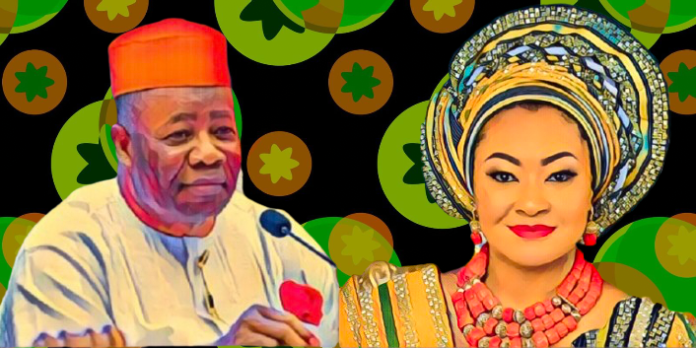KEY POINTS
- Federal High Court imposes media blackout on all parties in Natasha Akpoti-Uduaghan’s lawsuit against Senate President Akpabio
- Case centers on senator’s suspension and alleged denial of fair hearing, with next hearing scheduled for May 12
- Ruling highlights judiciary’s stance against pretrial publicity as Nigeria grapples with legislative accountability issues
A Federal High Court in Abuja has issued a stern gag order preventing all parties involved in Senator Natasha Akpoti-Uduaghan’s lawsuit against Senate President Godswill Akpabio from making public comments about the ongoing case.
According to The Punch, Justice Binta Fatima Nyako handed down the ruling on Friday following complaints about media interviews being granted on the sub-judice matter.
The legal battle stems from Akpoti-Uduaghan’s six-month suspension by the Senate over alleged misconduct, which she claims violated her right to fair hearing. The case was recently transferred to Justice Nyako’s court from Justice Obiora Egwuatu’s division.
“There shall be no press interviews by all parties and their lawyers regarding the subject matter of the case,” Justice Nyako declared, also prohibiting social media streaming of court proceedings.
The order came after Akpabio’s lawyer, Kehinde Ogunwumiju (SAN), accused the plaintiff of granting extensive media interviews, including appearances on international networks like BBC and CNN.
Legal team from Akpabio clash with Natasha’s representatives
During the heated proceedings, Natasha’s counsel Jibril Okutepa (SAN) pushed for consolidated hearing of all applications with the substantive suit, citing time sensitivity as his client’s suspension has a limited duration. While some defendants agreed, Akpabio’s legal team strongly opposed this approach.
“My client was not accorded fair hearing before the Senate took the decision to suspend her,” Okutepa argued, emphasizing the urgency for resolution. Justice Nyako ultimately ruled in favor of consolidation, scheduling the next hearing for May 12.
The case has drawn national attention amid growing concerns about legislative accountability and due process in Nigeria’s National Assembly. Legal experts note this gag order reflects courts’ increasing intolerance for trial by media in high-profile political cases.



